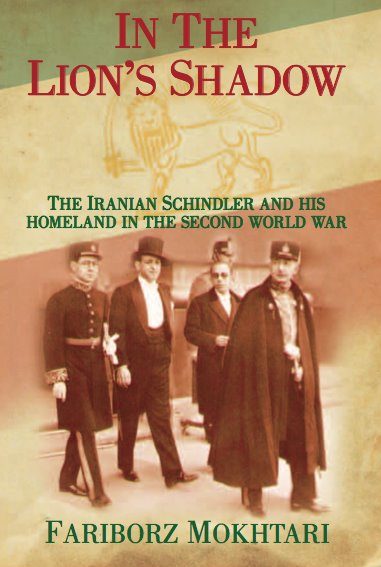


About the Author
Fariborz Mokhtari, born in 1946 in Isfahan, Iran, grew up during a time of crises after World War II. Despite declared neutrality, Iran had been invaded by the Allied Forces and occupied. The departure of foreign armies had not ended the country's internal discord or external meddling. His father a military officer, the family lived in different parts of the country before Mokhtari graduated from Alborz high school in Tehran and left for the United States for an American college education. After attending an English language school in Washington DC. he enrolled at the College of Wooster, Ohio, but transferred to the University of Delaware prior to graduation. He received a BA and an MA in Political Science from the U of D and returned to Iran in 1973.
Already married to a graduate student from Thailand, the couple and their son born in Wilmington, Delaware, settled in Tehran where Mokhtari fulfilled his military conscription duty, worked as a journalist at the Kayhan Group of Newspapers, wrote regularly for Kayhan-International (English daily), Kayhan (Persian daily), and contributed to Zan-e Rooz (women’s weekly). His wife worked at Kayhan’s art studio as a graphic artist and illustrator and later taught at Tehran's Parthian International School. Interested in business and agriculture, Mokhtari acquired a farm in northern Iran and transformed it into an orchard with 17,000 apple trees. He joined the Iran-British Chamber of Commerce as Deputy Executive Director in 1976.
As social tensions in Iran grew, his friends and a former professor Dr. William W. Boyer warned Mokhtari of the impending instability they foresaw, offered him support if he returned to Delaware and a doctoral fellowship. The revolution in 1978 and the brutal destruction it unleashed forced the family's heart wrenching decision to leave the homeland. He left Iran for the US in September 1979 with his clothes and $4,000 to his name. His wife, and by then two sons, were to join him via Thailand shortly. But student revolutionaries occupied the US Embassy in Tehran and the infamous Hostage Crisis prompted a presidential executive order that disqualified Iranians for visa to the United States. That executive order made the younger of the two sons--a toddler born in Iran--a persona non grata. Mokhtari's old college friends in Delaware appealed to Senator Joe Biden, who graciously requested Secretary of State Cyrus Vance to intervene. He did, and the family was finally reunited in 1980.
Mokhtari earned a Ph.D. in Political Science & Economics in June 1983 and the family moved to Vermont the following month. Dr. Mokhtari taught at Norwich University (Military College of Vermont) for almost twenty years. He was promoted to Professor, served as Department Chairman, Director of the Military Graduate Program, and Special Assistant to the President. He joined the faculty of the National Defense University (NDU) in Washington DC in 2002, where he served as professor and policy advisor at the University's Near East South Asia Center for Strategic Studies (NESA) through 2011. He prepared, facilitated and conducted seminars and workshops on strategic, operational, and international security issues for senior participants, including flag officers and civilians of ambassadorial rank.
Retired from NDU, he and his wife returned to Vermont in 2012. He continues to research, write, travel, enjoy the company of former colleagues, ride bicycle with friends when weather allows, and accompany his wife on visits to their four grandchildren in California whenever possible.